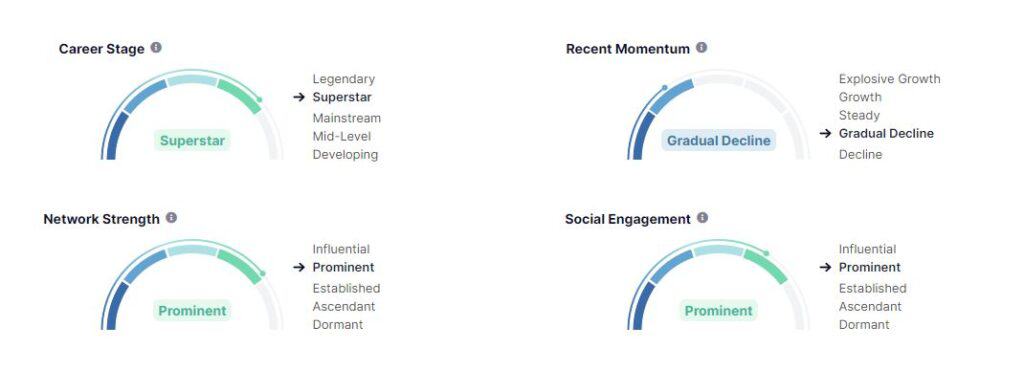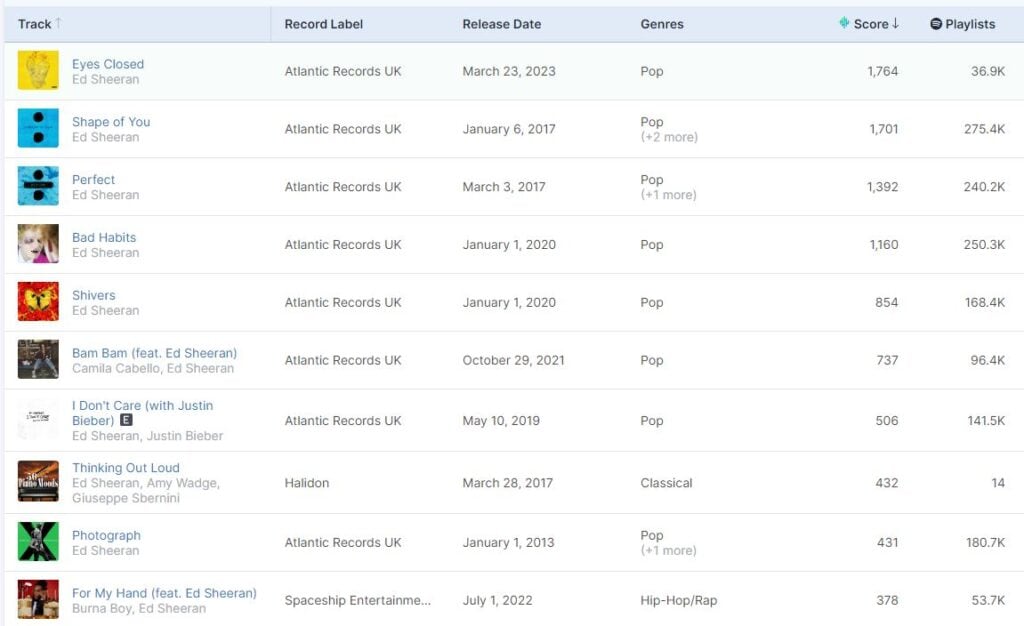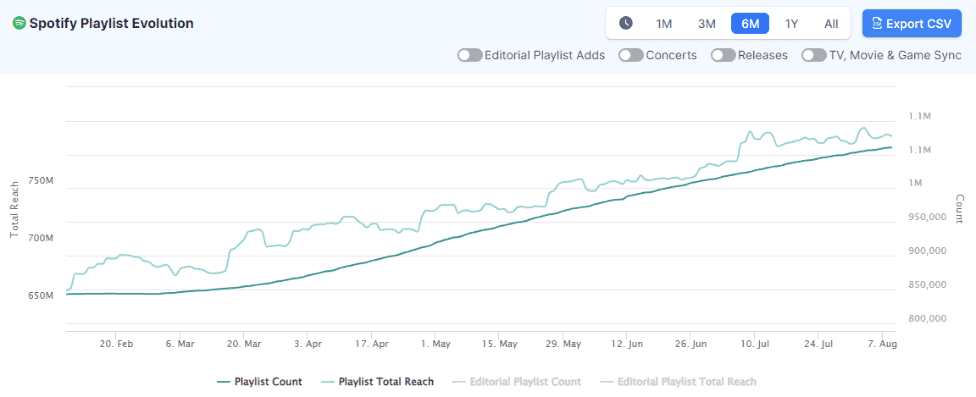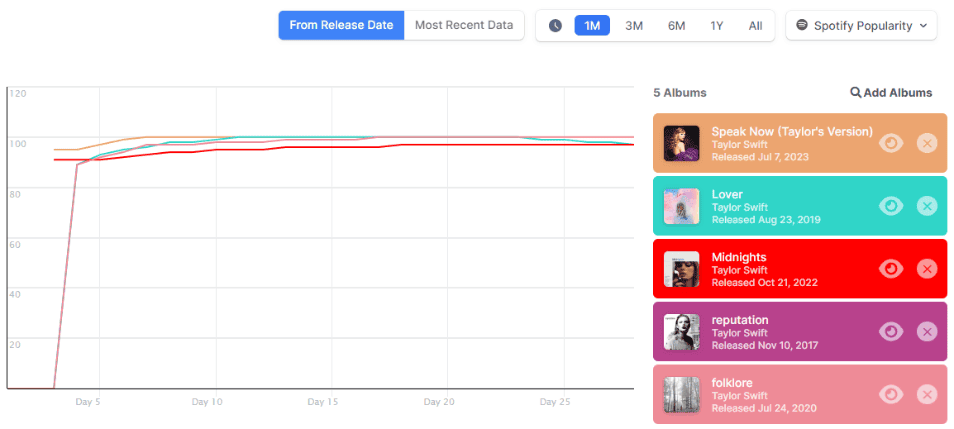When Long Island hip-hop trio De La Soul arrived in 1989 with debut album, 3 Feet High and Rising, they sounded like nothing else. The album’s colorful, almost collaged production aesthetic and the rappers’ rhyme styles that were equal parts clever and goofily humorous made De La Soul a gentler, more inventive one-of-a-kind presence in a rap landscape largely defined by aggression and righteous anger. De La Soul were inventive and eclectic, bringing not only funk and soul, but also pop, jazz, reggae, and psychedelia samples into their strange and alluring patchwork of sounds. The group continued down their own path on their own terms as trends in rap came and went. Their output throughout the ’90s was entirely formative for hip-hop on the whole, with works like 1991’s De La Soul Is Dead and 1996’s Stakes Is High providing a wealth of inspirational starting points that entire generations of other artists would build from. After 2004’s The Grind Date, De La Soul went on hiatus, but returned in 2016 with the crowd-funded And the Anonymous Nobody as well as the occasional stand-alone track. In 2023, after years of legal battles over rights and ownership, De La Soul finally regained access to their back catalog and made plans to finally get some of their classic albums released on streaming services for the first time.De La Soul formed when the three members — Posdnuos (Kelvin Mercer), Trugoy the Dove (David Jude Jolicoeur), and Pasemaster Mase (Vincent Lamont Mason, Jr.) — were attending high school in the late ’80s. The stage names of all of the members were derived from in-jokes: Posdnuos was an inversion of Mercer’s DJ name, Sound-Sop; Trugoy was an inversion of Jolicoeur’s favorite food, yogurt. De La Soul’s demo tape, Plug Tunin’, came to the attention of Prince Paul, the leader and producer of the New York rap outfit Stetsasonic. Prince Paul played the tape to several colleagues and helped the trio land a contract with Tommy Boy Records.Prince Paul produced De La Soul’s debut album, 3 Feet High and Rising, which was released in the spring of 1989. Several critics and observers labeled the group as a neo-hippie band because the record praised peace and love as well as proclaiming the dawning of “the D.A.I.S.Y. age” (Da Inner Sound, Y’all). Though the trio were uncomfortable with the hippie label, there was no denying that the humor and eclecticism presented an alternative to the hardcore rap that dominated hip-hop. De La Soul were quickly perceived as the leaders of a contingent of New York-based alternative rappers that also included A Tribe Called Quest, Queen Latifah, the Jungle Brothers, and Monie Love; all of these artists dubbed themselves the Native Tongues posse.For a while, it looked as if De La Soul and the Native Tongues posse would eclipse hardcore hip-hop in terms of popularity. “Me, Myself and I” became a Top 40 pop hit in the U.S. (number one R&B), while the album reached number 24 (number one R&B) and went gold. At the end of the year, 3 Feet High and Rising topped many best-of-the-year lists, including the Village Voice’s. With all of the acclaim came some unwanted attention, most notably in the form of a lawsuit by the Turtles. De La Soul had sampled the Turtles’ “You Showed Me” and layered it with a French lesson on a track on 3 Feet High called “Transmitting Live from Mars,” without getting the permission of the ’60s pop group. The Turtles won the case, and the decision not only had a substantial impact on De La Soul, but on rap in general. Following the suit, all samples had to be legally cleared before an album could be released. Not only did this have the end result of rap reverting to instrumentation, thereby altering how the artists worked, it also meant that several albums in the pipeline had to be delayed in order for samples to be cleared. One of those was De La Soul’s second album, De La Soul Is Dead.When De La Soul Is Dead was finally released in the spring of 1991, it received decidedly mixed reviews, and its darker, more introspective tone didn’t attract as big an audience as its lighter predecessor. The album peaked at number 26 pop on the U.S. charts, number 24 R&B, and spawned only one minor hit, the number 22 R&B single “Ring Ring Ring (Ha Ha Hey).” De La Soul worked hard on their third album, finally releasing the record in late 1993. The result, entitled Buhloone Mindstate, was harder and funkier than either of its predecessors, yet it didn’t succumb to gangsta rap. Though it received strong reviews, the album quickly fell off the charts after peaking at number 40, and only “Breakadawn” broke the R&B Top 40. The same fate greeted the trio’s fourth album, Stakes Is High. Released in the summer of 1996, the record was well reviewed, yet it didn’t find a large audience and quickly disappeared from the charts. Four years later, De La Soul initiated what promised to be a three-album series with the release of Art Official Intelligence: Mosaic Thump; though reviews were mixed, it was greeted warmly by record buyers, debuting in the Top Ten. The second title in the series, AOI: Bionix, even featured a video hit with “Baby Phat,” but Tommy Boy and the trio decided to end their relationship soon after. De La Soul subsequently signed their AOI label to Sanctuary Urban (run by Beyoncé’s father, Mathew Knowles) and released The Grind Date in October 2004. Two years later, the group issued Impossible Mission: TV Series, Pt. 1, a collection of new and previously unreleased material. The band then went on hiatus with only the splinter release De La Soul’s Plug 1 & Plug 2 Presents…First Serve released in 2012. A year later, they created a free download of all their early albums and packaged the set as You’re Welcome, though it wasn’t available for long thanks to the legal efforts of their former label, Warner Bros. A crowd-funding campaign for a new album was launched in 2015, and after successful funding, the LP And the Anonymous Nobody was self-released in August 2016. The nearly sample-free album featured the trio’s live band and assorted friends playing live instruments, along with a guest list that included Usher, David Byrne, 2 Chainz, and Damon Albarn, among many others. Additional non-album tracks cropped up on occasion, including “Rocket Fuel,” the group’s 2019 collaboration with DJ Shadow, and “It’s Like That,” a song made with R&B vocalist Carl Thomas issued the same year. In 2020, De La Soul released “Remove 45,” a stand-alone track criticizing the Donald Trump presidency as racist and hateful. In June of 2021, the catalog of Tommy Boy, De La Soul’s former label, was acquired by new owner Reservoir, effectively ending years of legal issues that had limited the group’s access to their older records. With this battle finally behind them, De La Soul planned to release their entire back catalog to all streaming platforms on March 3, 2023, 34 years to the day after 3 Feet High and Rising came out. Though some of their more recent albums had been made available on streaming services, their first six albums never had until this point. The celebratory mood of De La Soul’s music being back in front of their fans again was dimmed by the news that David Jude Jolicoeur, aka Trugoy the Dove, died on February 12, 2023 at the age of 54, following several years of health problems. ~ Stephen Thomas Erlewine, Rovi






